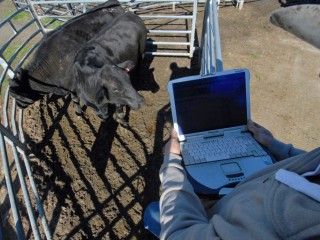 The axing of two major Cooperative Research Centres covering the beef and cotton sectors will leave a gaping hole in rural science funding, an industry leader says.
The axing of two major Cooperative Research Centres covering the beef and cotton sectors will leave a gaping hole in rural science funding, an industry leader says.
Both CRCs failed to make the cut in the Federal Government’s competitive tendering system and will be wound up next year.
“This is a serious blow to rural Australia, losing research funding support for two of our major industries,” said Mike Stephens, president of Ag Institute Australia, formerly the Australian Institute of Agricultural Science and Technology.
The Institute represents a network of professionals working in all sectors of agriculture across the nation.
“The CRC model has fostered collaborative research which has achieved great things for rural industry,” Mr Stephens said.
“The beef CRC was one of our longest running, first funded in 1993. The work of the latest model focused on genetic technologies has been world class. It has placed Australia at the forefront in sequencing the bovine genome.
“This scientific discovery will have a huge impact on Australian cattle breeding into the future,” Mr Stephens said.
“Fortunately the Beef CRC has been developing an alternative model for collaborative research across the livestock sector with the concept of a government to government science agreement between Australia and the US.
“This is new territory which will now have to be urgently explored at the highest levels between industry and government to ensure research structure and momentum is not lost,” Mr Stephens said.
Mr Stephens noted that of the ten CRC bids which have been accepted into the next round of the selection process, only two have a direct rural focus – plant biosecurity and invasive animals.
“It is disheartening to think that the rural sector is going to lose out when it comes to the allocation of government science funding.”
“The industry itself is well and truly pulling its weight and it now needs Government to step up and provide support. This is particularly so in the area of ‘blue sky’ research which is critical to generating innovation for which Australia has been so well known in the past.”
“Agriculture is a prime source of renewable exports which help keep our economy strong. The sector is lightly assisted by world standards, “ Mr Stephens said.
“Farmers have been suffering declining terms of trade for years and now face the additional hurdle of hostile exchange rates which make profitable exporting even more difficult.”
“Government investment supporting rural science and innovation is money well spent for the future of our nation,” he said.
